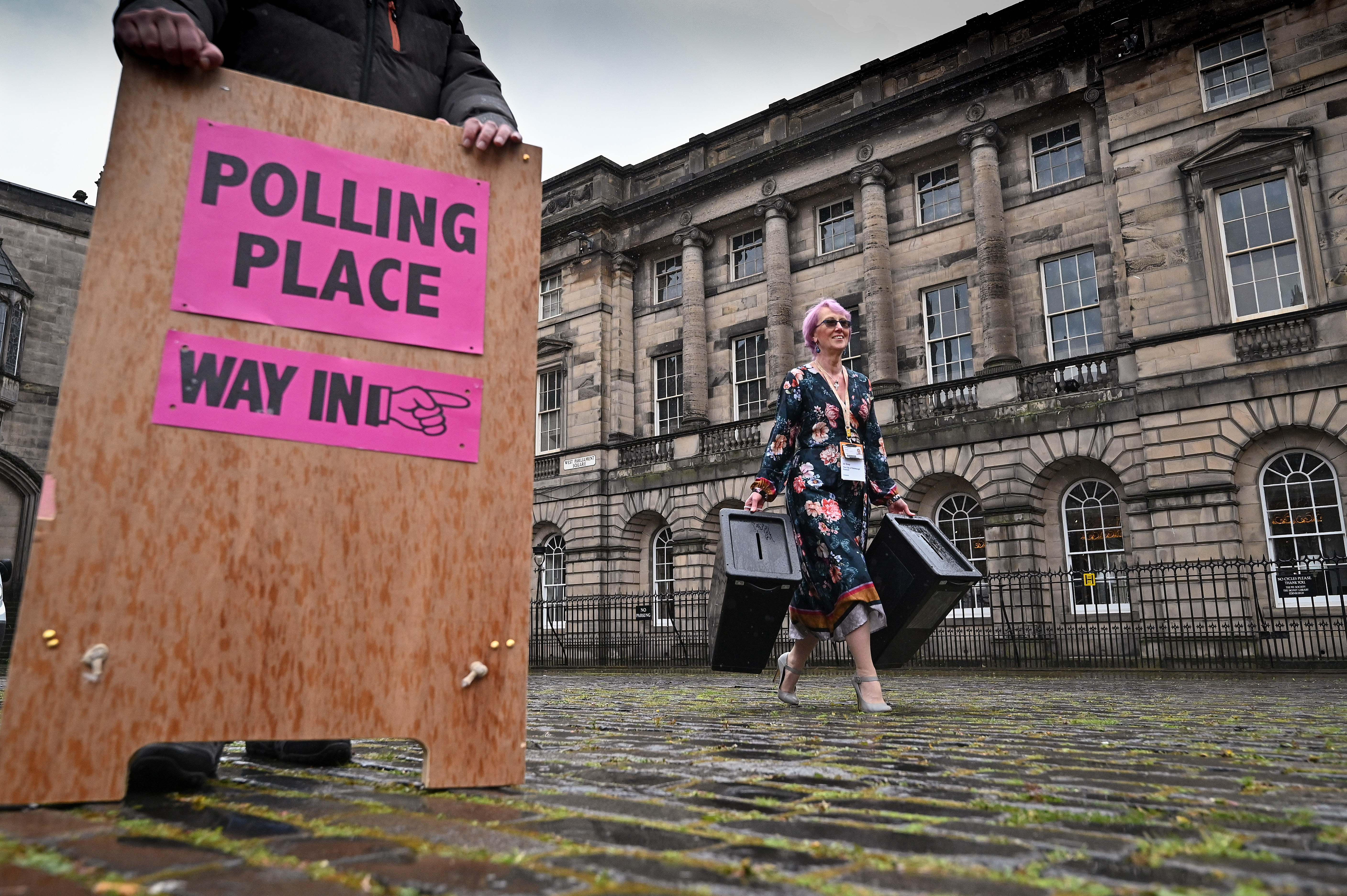Voters in Scotland have a lively choice of parties in today’s elections to the Holyrood parliament. In all, there are 25 vying for either or both of each elector’s two votes (proportional representation, innit). As a public service and to mitigate confusion, Mr Steerpike offers this explanatory note on the Scottish political landscape.
First, there’s the SNP, which is asking electors for both their votes to create a mandate for a second independence referendum. Voters who don’t support a second independence referendum and don’t want to give the SNP a mandate for one should still give the party both their votes. Because… reasons.
Then there’s the Scottish Conservatives, who are opposed to a second independence referendum and if they suspect you’re not, they’ll come round and tell your nan. The party’s other policies include not supporting a second independence referendum, calling a second independence referendum names and saying ‘second independence referendum’ while looking jolly cross.
Have you seen the video of him shaking his booty? He totally won TikTok. Just not the election.
Scottish Labour doesn’t want to return to the old arguments of the past, mostly because that might involve taking a stand and the last time Scottish Labour took a stand it ended up with one MP. No more stands. In fact, party leader Anas Sarwar prefers to dance. Have you seen the video of him shaking his booty? He totally won TikTok. Just not the election.
The Liberal Democrats have nothing do with either the Liberal Party (a breakaway faction that opposed the 1988 merger with the SDP) or the SDP (not the breakaway faction that opposed the merger with the Liberal Party but a breakaway faction from that breakaway faction). Both the Liberal Democrats and the Liberals are distinct from the Scottish Libertarian Party. While the Lib Dems are opposed to a second referendum on independence, the Libertarians are for it provided the legislation used to hold it is consistent with Part 3 of the party’s constitution, outlining its philosophy of natural rights, implied rights, voluntarism and taxation.
Next there’s the pro-independence Scottish Greens — and Independent Green Voice, which is neither connected to the Greens nor for independence. Then Alba, which is for independence, and is not to be confused with All for Unity, which is not. Alba split from the SNP and is led by a former MSP but is not to be mixed up with Scotia Future, which split from the SNP and is led by a former MSP. A key Alba policy is support for women’s equality, which is also quite important to the Women’s Equality Party.
There’s Restore (for independence from the UK and the EU) and Reform (for independence from the EU but not the UK). Renew, which was set up to oppose independence from the EU, is neutral on independence from the UK, but has a very involved plan for a two-stage referendum should it come to that. Then there’s Reclaim, which is for freedom, but not freedom in the SNP sense — freedom from ‘woke authoritarianism’.
Abolish the Scottish Parliament Party has an undoubted Ronseal quality to it but the ranks of the abolitionists are swelled by Ukip, which pledged to abolish Holyrood in 2011, then changed its mind in 2016, and has now changed it back. The Scottish Family Party thinks there’s too much licence nowadays and the Freedom Alliance thinks there’s not enough, especially the licence to go about maskless and without showing a vaccine passport. The Animal Welfare Party bills itself as the party ‘most strongly advocating for the protection of animals’, which it is demonstrating in this election by standing two candidates on the Lothian regional list. That’s still better than pro-Union (UK, not EU) Vanguard, which is putting up just the one.
The Communist Party of Britain advocates ‘a socialist Britain in which the means of production, distribution and exchange will be socially owned and utilised in a planned way’. The Trade Unionist and Socialist Coalition (TUSC), on the other hand, is after ‘a united struggle of working-class people across Scotland, England, Wales and Ireland for a free and voluntary socialist confederation’. TUSC is an electoral alliance dominated by the Socialist Party and the Socialist Party Scotland, both of which are different from the Scottish Socialist Party, which isn’t standing this time.
We trust that clears things up.








Comments